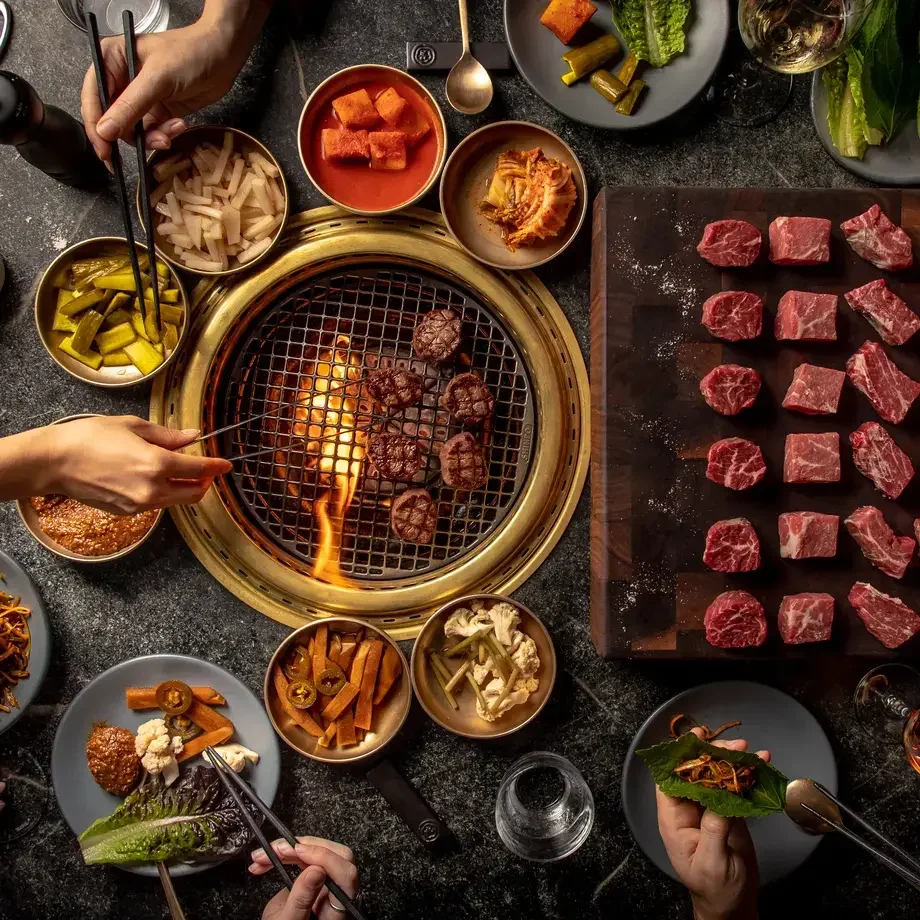There’s the bright, lively Cantinho, there’s the Bairro, split into three parts, Beco, a very sexy gourmet cabaret, there’s the sultry Mini Bar, pisco sours and ceviches in Cantina Peruana and the latest, Casa dos Prazeres, part cocktail bar, part Asian fusion, not to mention the 2 Michelin star Belcanto, the star of them all.
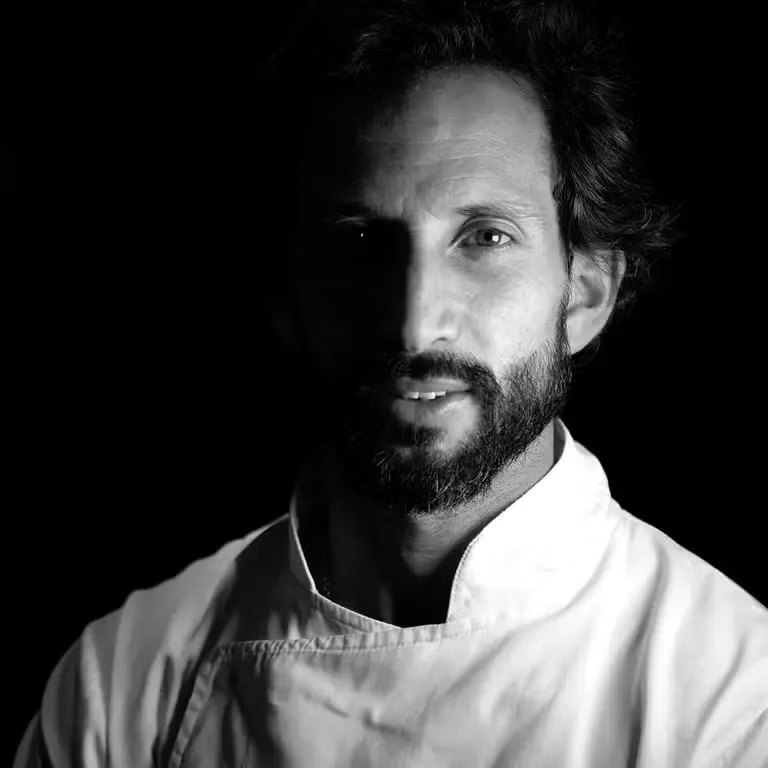
Photo Luis Mileu
Jose Avillez and his ever-growing culinary empire in Lisbon
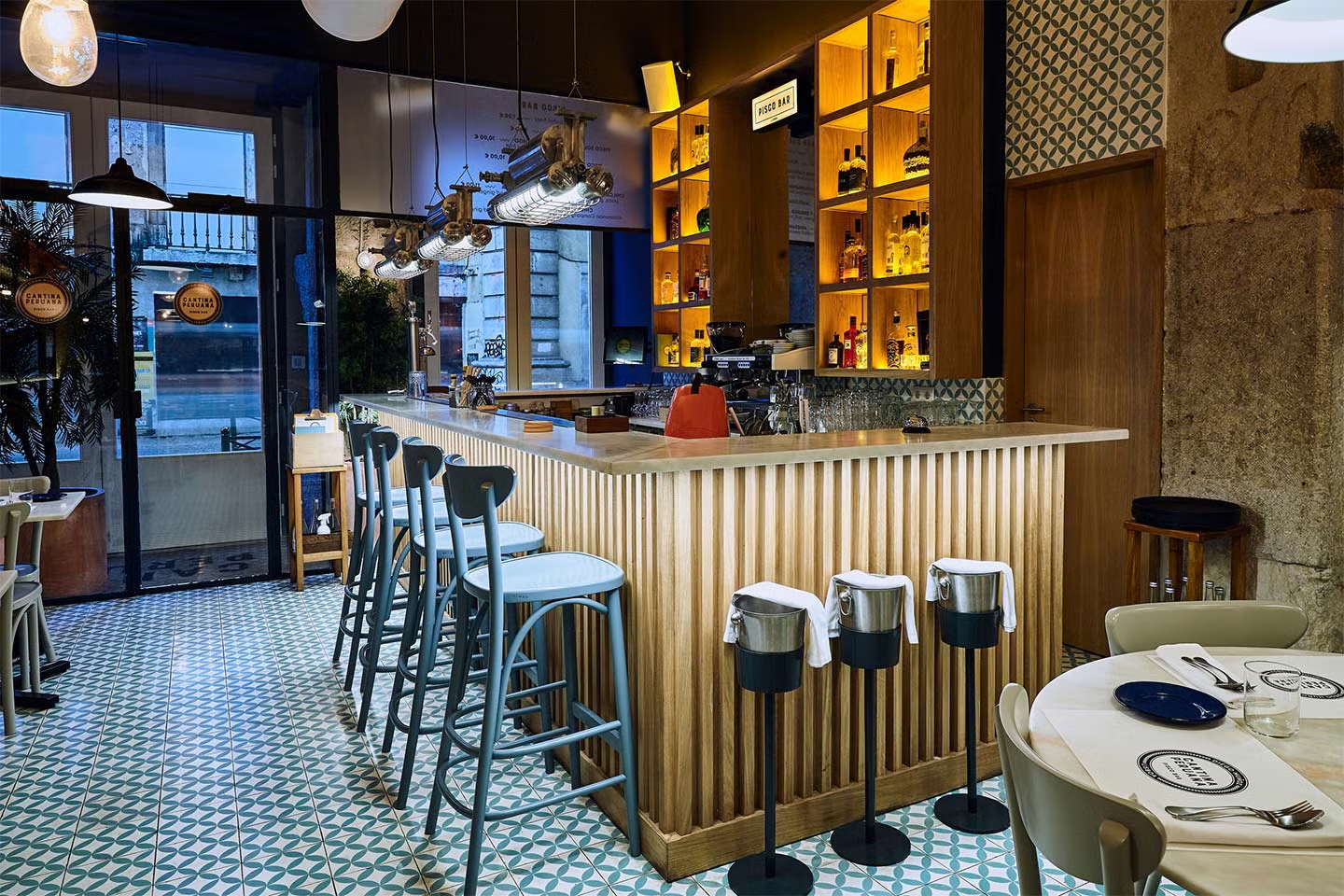
Cantina Peruana (Grupo José Avillez)
A gastronomical tour around Lisbon often feels like a tour of Jose Avillez’ many, many restaurants and venues. Justifiably so. There’s 16 of them, plus two in Porto, one in his home town of Cascais and one in Dubai. A whooping number for even the most prolific veteran chefs, let alone a 39-year-old with his whole career in front of him. Oh, and there’s also Jose Avillez wine, Jose Avillez line of canned sardines and that Men’s Health issue with chef’s chiseled torso on the cover (“It was a challenge I accepted for fun! I like challenges,” he laughs).
Building an empire? Avillez doesn’t quite see it like that.
A dream come true
“I never dreamed that we’d have what we have today. My dream was to have a small restaurant in Cascais, very close to the house where I grew up. I’ve had this entrepreneurial spirit since I was a kid, and I was lucky enough to find key-people, with as much energy and passion as I have. Together, we’ve come this far,” ponders.
He says the expansion wasn’t planned at all, but after he opened his first venue in 2011, Cantinho do Avillez in Chiado, followed by Belcanto in 2012, the opportunities “just arose”. “Trust me, I’ve refused more opportunities than I’ve accepted,” he assures me. “And I know I won’t open many more restaurants.”
Nevertheless, one has to wonder how he does it. How he manages to keep it fresh, to not spread himself too thin and losing focus along the way, not becoming a ubiquitous soulless franchise and to not repeat the concepts. And he really doesn’t. We start our “Avillez empire tour” with the very first one, the before mentioned Cantinho where they keep the wine flow going with chef Jose’s line of wine, called JA that he’s released in collaboration with his mentor, José Bento dos Santos of Quinta do Monte d’Oiro winery just outside Lisbon.
Then it’s off to Cantinho’s best sellers, tuna tartare with Asian flavors, eggs, cooked on low heat with sautéed chorizo and fried bread crumbles, flaked cod with breadcrumbs and olive spheres, giant red Algarve shrimp with Thai sauce, pork from Alentejo with farofa and black beans. It’s very Portuguese, but also reflects Avillez’ affinity to Asian fusion which is not entirely foreign to country where influences from its former colonies still play a big role.
Many restaurants, many different concepts
When you stand right on the giant compass rose in Belem, on the bank of Tagus River, and under the Monument, dedicated to discoveries, you can see it – tiny Portugal in the center and the whole world of its conquers – from Brazil to Macau, from Angola to Portuguese India. Portuguese soaked it all in and you can see it in regular use of avocados, of cilantro, of farofa … hell, even cod is not native to Portugal, and it’s their staple food.
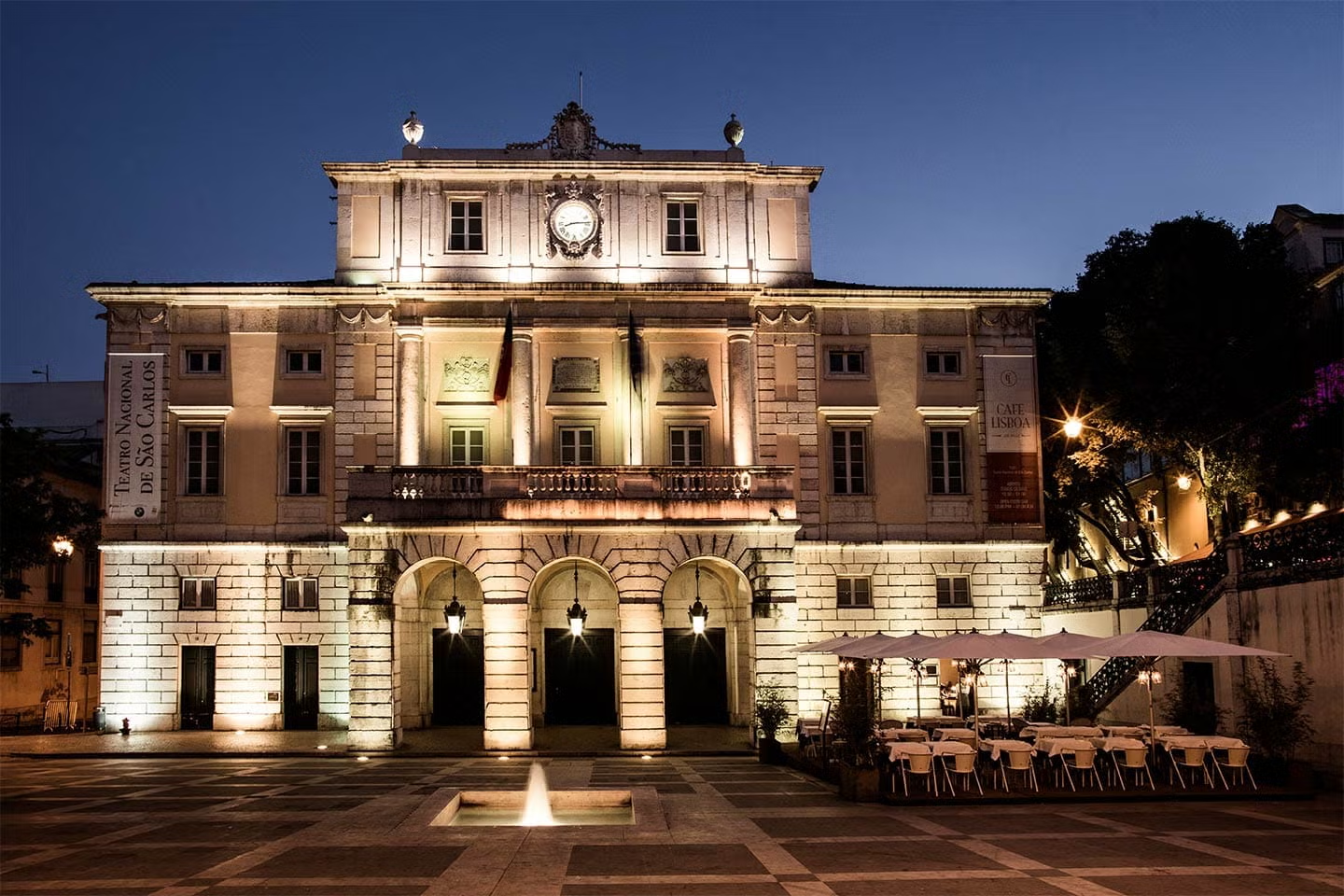
Café Lisboa (Paulo Barata)
Later on we pass Avillez’ Café Lisboa, the elegant, upscale, bourgeois-like café with a lot of flair of old style, traditional cafes. You can smell “pasteis de nata”, custardy tarts dusted with cinnamon, so ubiquitous all around the town. The sweet aromas intertwine with the smell of grilled sardines that they are flipping on open grills as part of the festival of St. Anthony, city’s patron saint.
Lisbon is a vibrant, picturesque city with a colorful mix of people, accents and smells on the streets, all infused with iodine in the air. It’s a very relaxed city, more Mediterranean than Atlantic, with constant breeze that swishes through the steep San Francisco-like alleys where trams rumble through. It’s on the crossroads of different worlds and continents and it’s where many expats live, instantly enamored with this charming, open town.
We move to Bairro do Avillez, an ambitious 3-way split spacious venue that brings together hearty traditional food (Taberna), seafood (Pateo) and deli (Mercearia), plus a speakeasy style cabaret in a hidden passageway (Beco). It sounds like a stretch to pull that off, but somehow, it works. In Taberna they serve sharing-style plates like beef croquettes, tuna steak sandwiches and mackerel tartar, along with some tasty Madeira bread, olive oil and marinated olives. In Pateo you cannot go wrong with the delicious red prawn doused in butter and garlic; and dimly lit Beco, well, it’s decadent, it’s fun, it’s a combination of bare dancers’ legs and gourmet tasting menu.

Bairro do Avillez (Paulo Barata)
To top everything off, there’s also a gourmet deli at the entrance where they sell varieties of cheese, charcuterie and canned sardines with Avillez’ name attached to it. He says that last part was just an organic reaction to numerous requests from customers. “In Portugal, the canned fish industry is quite extraordinary, very high-quality, and a product I really love,” he tells me just as I get an online request from a friend to bring him back a couple of most retro-looking tins of sardines.
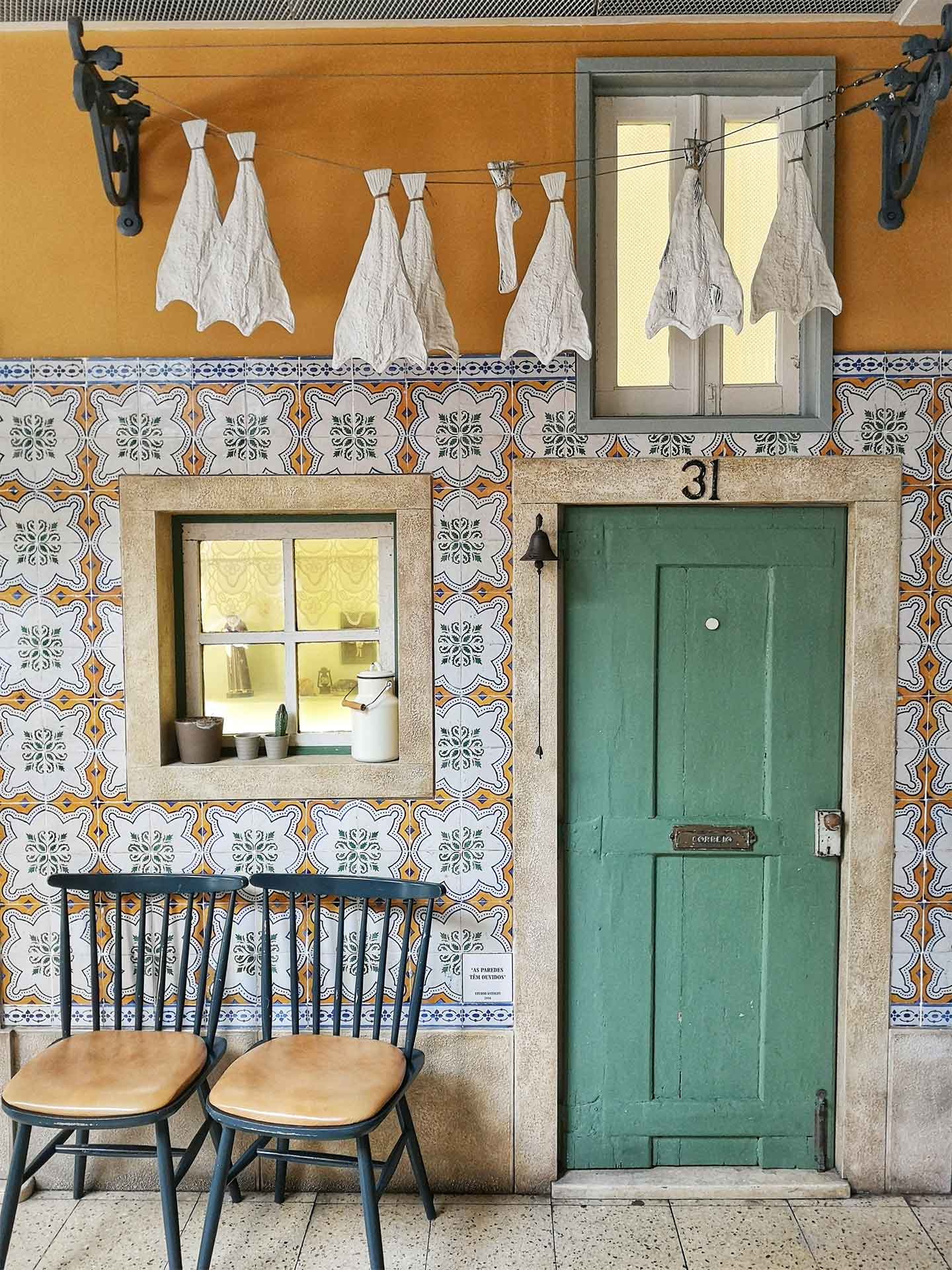
Pateo (Kaja Sajovic)
Avillez says he can’t really explain the creative process that goes into conceiving these places that all have a very different, distinct feel to them. “I’m constantly having ideas and I have a passionate team who’s always motivated and ready for anything. I pay attention to what’s happening, I love to travel, learn, get to know, study, talk… and this inspires me,” he tells.
Rising Portugal
“I’m passionate about cuisine and I like to work with different kinds of products, cooking styles and service. I like to create concepts and to think about each detail (space, atmosphere, menu, service, room temperatures, lights, smells, everything). The creative process gives me immense pleasure.”
In recent years Lisbon - and Portugal in general - have seen steady increase of tourists and the capital registered a record number of 12,8 million overnight stays last year. With outstanding produce like shrimps from Algarve or butter from Azores is rapidly rising also gastronomic tourism and Lisbon is now seen as one of the hot emerging destinations. Avillez is convinced Portugal doesn’t only have amazing cuisine, but “maybe one of the world’s best”.
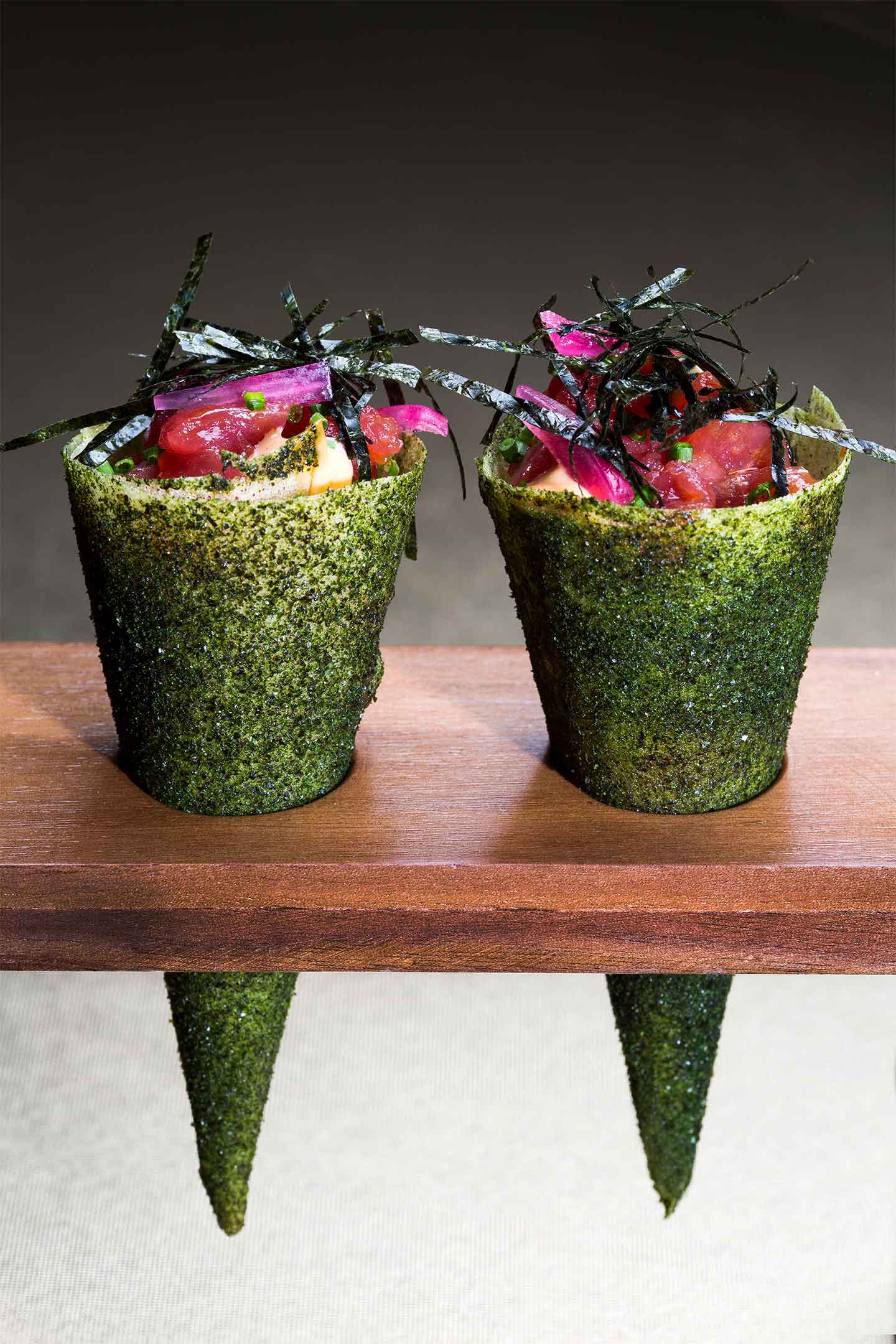
Mini Bar | Tuna tartar temaki cone
“Portuguese chefs finally had the opportunity to open their own restaurants and the number of important international distinctions attributed to Portuguese restaurants rose ¾ being included on lists like “World’ 50 Best”, the number of Michelin stars attributed to Portugal…¾ all of this had a significant role in the international recognition and the gastronomic value of the country,” ponders Avillez who is still in the phase of pleasant shock to how many customers fly from let’s say New York just to have dinner at Belcanto and then return home. “Ten years ago, this didn’t happen.”
Both the tourist growth and the economic crisis gave Avillez and his team opportunity to open restaurants for different audiences, and of offering work in a time during which so many people had lost their jobs. “Here they found a new future. Most of the people who work here will chose the word family to define what we represent to them. It has been and incredible an intense journey, lived through with so much heart,” tells Avillez.
Belcanto, a place to call home
But he doesn’t hide where his heart truly lies – it’s Belcanto. It’s always been Belcanto. He opened it in 2012, just across from the house where the great Portuguese poet Fernando Pessoa was born. Pessoa, who quite aptly once wrote:
I've never done anything but dream. This, and this alone, has been the meaning of my life
And Avillez dreams big. The same year he opened Belcanto, he earned his first Michelin star. The second came in 2014 and in 2015 he made his debut on The World's 50 Best Restaurants list where he now sits in 42nd place.
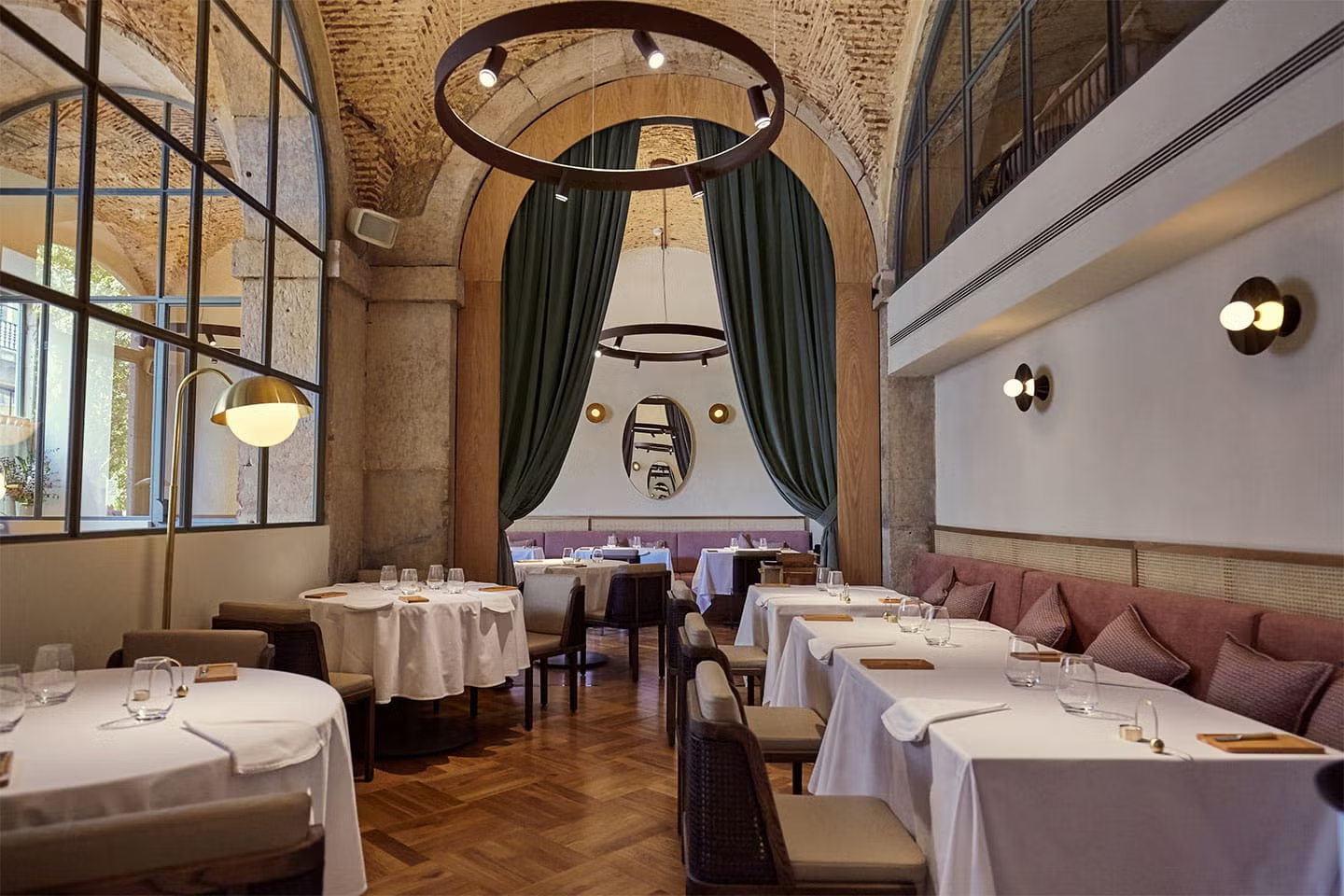
Belcanto (Grupo José Avillez)
“Belcanto is the place that truly defines me as a cook. It’s home. It fills me with pride to walk into Belcanto and see the people we host feel so good in that place and abandon themselves to that comfort, enjoying the atmosphere, the cuisine, the wines, the service,” he says.
The venue has just recently gone through a minor reinvention of sorts when they moved the restaurant next door, to a more spacious venue set in the former monastery. A change, Avillez says made perfect sense and reflects his focus and his growth as well as the team’s in terms of knowledge and creativity.
He sets in front of us his signature set of amuse-bouches – dirty elderini with spherical olive and brioche with lupin beans puree, orange blossom and crab; cherry sarapatel; Ace of hearts, foie gras suits and tempura avocado while stressing how tempura is really Portuguese, not Japanese invention.
Belcanto’s tasting menu is refined, high level, but approachable. It’s that spherical olive, yes, but then you get a modest grilled sardine that’s propelled to fine dining dish with bell pepper gel, basil and rosemary ash. There’s the mighty carabiniero, Algarve’s scarlet shrimp, but it’s served with corn porridge, a common peasant food.
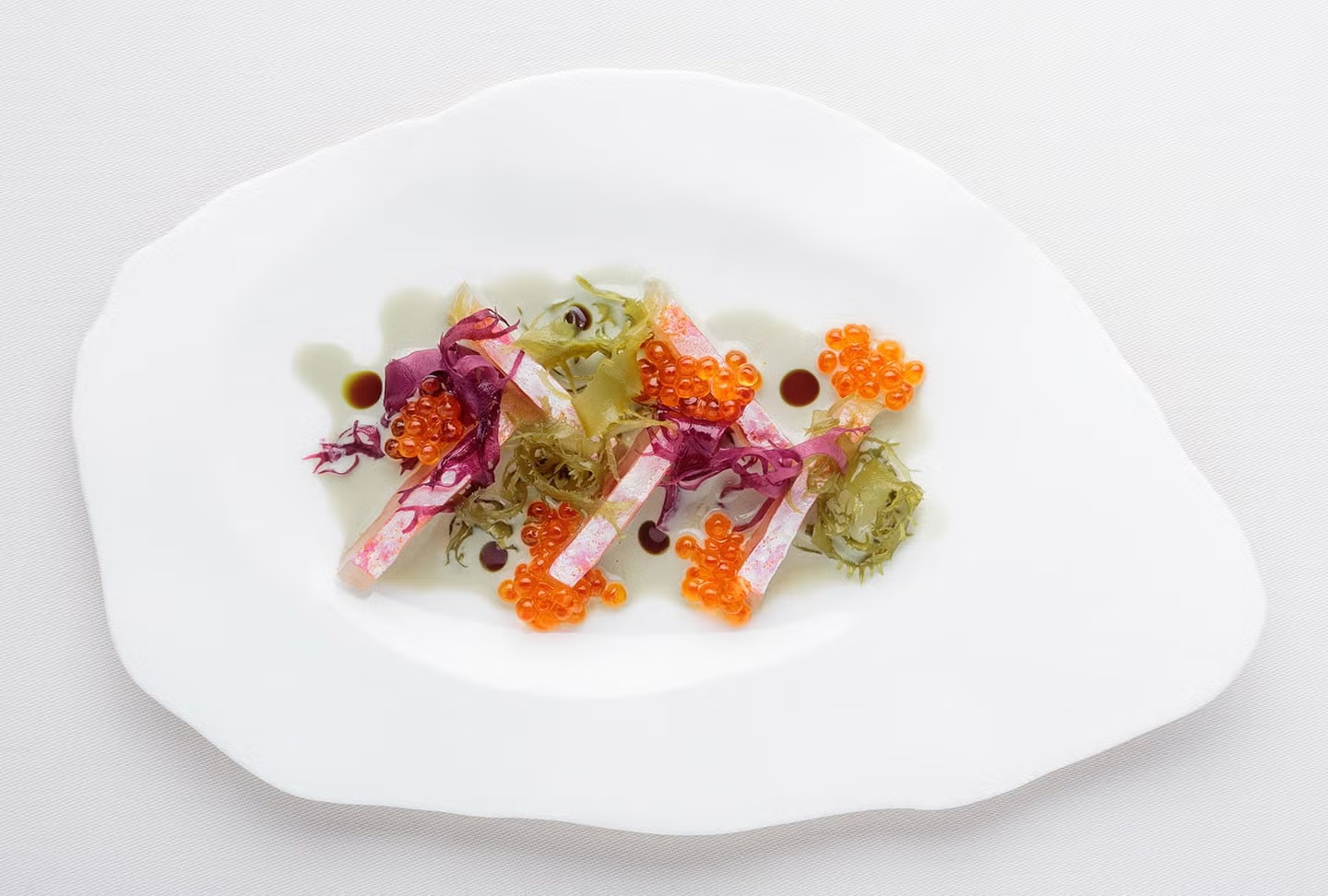
Belcanto Evolution menu | Cured red mullet (Boa Onda)
And yes, there’s the super elegant sea bass with avocado, dashi, prawn, salsify, razor clams, lime zest, and pistachio oil, but it’s followed by inside-out suckling pig sandwich with fried potatoes and orange sauce and the insane dessert of chocolate and cuttlefish ink for which they make you put on a half-sleeve to wipe your inky mouth with.
It’s playful, it’s flavourful, it’s classical, but with a twist and in its essence – Portuguese, in as many shapes and incarnations as that term comes. Avillez is not a fan of too brainy cuisine, of cuisine that pushes you to the very limits of your comfort zone. He likes, first and foremost, to give pleasure. For him being a chef is an art form, yes, but if he had to compare the craft with a certain art, it would be architecture, “where you make a house for someone to live inside” (as opposed to just look at it and admire).
“I find that being a cook is, by definition, to be generous. There’s an eagerness to serve, to share. In cuisine there are many possible paths and we evolve. A few years ago, I was more philosophical than am I today. There are cooks who focus on their own tastes, on their creativity, offering meals with a strong artistic component that transcends taste. It’s an admirable and courageous path. I love it when people love it. Nothing gives me more pleasure than seeing someone feeling moved by their experience in Belcanto which happens quite often and makes us very happy,” he smiles.
As for the future, he plays coy. “Let’s see what it holds. For now, we are grateful and proud of what we have accomplished, but we firmly believe we can always go further and do better.”







